The CSA Presidents’ Archive records the histories, achievements and memories of CSA from our inception in 1975 and continuing with each successive president, from their various points of view. The presidents of each year are asked to respond to a ten-question interview, written by Allyson Salinger Ferrante, to tell of their personal experiences with both the organization and their chosen fields within Caribbean Studies. The aims of this project are multiple and include celebrating where CSA came from and where it is going as an organization rooted in fostering personal relationships across waters and disciplines. The archive presents a picture of each president, photos of their chosen conference site, a short biography, and the posted interview. The internet provides an expansive space to record and share the places we’ve been, the challenges we’ve faced, and advice for a prosperous future. It is an opportunity for dialogue between presidents, members, and new scholars just joining Caribbean Studies and CSA. Given the diversity of presidential backgrounds, including such illustrious careers as Olympic athletes, prime ministers, ambassadors, professors and poets, the responses demonstrate both the professional and intellectual breadth of Caribbean Studies. It is our hope that this project will teach, entertain, and inspire old and new members alike, and that in this way we can honor the hard work and service of those people whose commitment to CSA has brought it into the 21st century.
CSA wants to hear of your recent accomplishments.
You may contact the 2023-2024 CSA President Okama Ekpe-Brook at: president@caribbeanstudiesassociation.org
|
ChenziRa Davis Kahina respectfully known as “Dr. Chen” is a co-founding director of Per Ankh (House of Life) ©, Per Ankh M Smai Tawi©, and Per Ankh Khamniversity Institute © supporting Culture, Health, Arts, Technology and Spirituality for Life, Inspiration, Freedom, and Education (CHATS4LIFE©). Davis Kahina is the CEO of AST Speaks consultancy; inaugural director of the VI Caribbean Cultural Center at the University of the Virgin Islands; and producer/director/writer/narrator of the ethnodocumentary Queens of the Virgins. Davis Kahina’s academic and intellectual research journeys include Rutgers, Pepperdine, UC San Diego, International University of Natural Sciences with certifications from other global institutions. Davis Kahina works collaboratively with interdisciplinary, socioeconomic-focused, Caribbean-centered organizations, and global alliances inclusive of: Caribbean Pan African Network; CARICOM Caribbean Reparations Commission; Afrakan Queen Mother Warriors©; VI Architecture Center for Built Heritage and Crafts; Toastmasters International™; Sixth Region Diaspora Caucus©; CaribAcademy©; Association of Naturopathic Therapeutics; Heritage Education Arts Legacy©; Society of Black Archaeologists; St. Croix Foundation for Community Development-NonProfit Consortium; African Views©; and other academic, sustainable, and humanitarian organizational developments. |
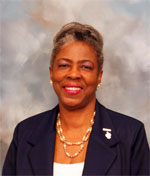 2021-2022: Eris D. Schoburgh 2021-2022: Eris D. Schoburgh
Dr. Eris D. Schoburgh, is Professor of Public Policy and Management, in the Department of Government and Associate Dean in the Faculty of the Social Sciences, at The University of the West Indies, Mona Campus where she teaches courses in public and policy management at the undergraduate and graduate levels. She currently coordinates the Public and Policy Management Unit. Her general area of academic specialisation is public policy analysis and management with special focus on comparative subnational government/governance; subnational/local (economic) development. She has several publications among which are three books and several research articles that have appeared in leading international and regional journals. Professor Schoburgh is a Member of the Commonwealth Local Government Forum (CLGF), the International Public Policy Association (IPPA), the International Research Society for Public Management (IRSPM), and the Caribbean Studies Association (CSA). Her public service includes appointments as Co-chair of the Governance Thematic Working Group of Vision 2030 Jamaica National Development Plan, Planning Institute of Jamaica; former Chairperson of the Mountain Terrace Cooperative Housing Society Limited; and former Director of the Board of the Social Development Commission (SDC). |
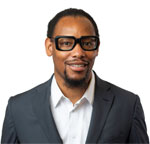 2019-2021: tavis d. jules 2019-2021: tavis d. julestavis d. jules is an Associate Professor Cultural and Educational Policy Studies at Loyola University Chicago, specifically focusing on Comparative and International Education and International Higher Education. His vast professional and academic experiences have led to research and publications across the Caribbean on regionalism and governance, transitory spaces, and policy challenges in small island developing states (SIDS). He is Book Review Editor for the Caribbean Journal of International Relations and Board Member of the Caribbean Journal of Educaion.He has also authored and edited numerous books including Neither world polity nor local or national societies: Regionalization in the Global South – the Caribbean Community (Peter Lang Press, 2012); The New Global Educational Policy Environment in the Fourth Industrial Revolution: Gated, Regulated and Governed (Emerald Publishing, 2016); and Re-Reading Education Policy and Practice in Small States: Issues of Size and Scale in the Emerging Intelligent Society and Economy (with Patrick Ressler, Peter Lang Press, 2017). |
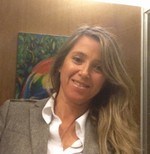 2018-2019: Catalina Toro Pérez 2018-2019: Catalina Toro Pérez
Associate Professor in the Department of Political Sciences at the School of Law, Political and Social Sciences, National University of Colombia. Dr. Toro Pérez holds a PhD in Political Science from the Institute of Political Studies, Paris, France. Dr. Toro Pérez leads the Group on The Political Economy of Extravism in Latin America and the Caribbean (CLACSO, Consejo Latinoamericano de Ciencias Sociales, 2013-2016; 2016-2019). She is a member of the Caribbean Studies Association since 2014. Director of the Department of Political Sciences and of the Curriculum Area of Political Sciences (2014-2016). » Read More |
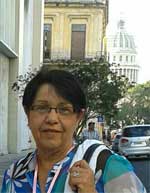 2017-2018: Yolanda Wood 2017-2018: Yolanda Wood
PhD en Art History and Principal Consultant in Art History at the Faculty of Arts and Literature of the University of Havana, Cuba. Member of the University since 1974. In 1985 she founded the Chair of Caribbean Art History and introduced the study of Caribbean arts into the undergraduate curriculum, the Masters in Art History and into the Master in Caribbean studies, organized by the Chair of Caribbean Studies at the University of Havana. Dr. Wood Pujols is visiting professor at UNAM (National Autonomous University of Mexico) in the Graduate program in Art History, and in the Faculty of Philosophy and Literature; » Read More |
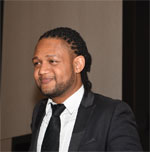 2016-2017: Keithley Woolward 2016-2017: Keithley Woolward
Keithley Woolward is an Advanced Assistant Professor of French and Francophone Studies at the University of The Bahamas, Nassau, Bahamas. Woolward also served as Director of Graduate programmes (Interim) during the College’s transition to University status. » Read More |
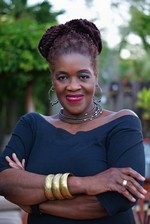 2015-2016: Carole Boyce Davies 2015-2016: Carole Boyce Davies
Carole Boyce-Davies is Professor of Africana Studies and English at Cornell University. Her most recently published book is Caribbean Spaces. Escape Routes from Twilight Zones, dealing with the issue of internationalizing Caribbean culture. Born in Trinidad and Tobago, she is a the author of the prize-wining Left of Karl Marx. The Political Life of Black Communist Claudia Jones (Duke University Press, 2008) and Black Women, Writing and Identity: Migrations of the Subject (Routledge, 1994). » Read More |
 2014-2015: Jan DeCosmo 2014-2015: Jan DeCosmo
Jan DeCosmo is Professor of Humanities in the Department of Visual Arts, Humanities & Theatre at Florida A&M University, where she has been teaching for 34 years. Her undergraduate and master’s degrees were in International Affairs, and her Ph.D. (Florida State University,1987) was in Humanities, with a dissertation on the concept of alienation in the writings of Karl Marx, Max Weber and Hannah Arendt. » Read More |
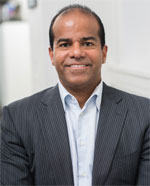 2013-2014: Dwaine Plaza 2013-2014: Dwaine Plaza
Dwaine Plaza is a Professor of Sociology in the School of Public Policy at Oregon State University. He has been at Oregon State University for eighteen years and teaches a wide slate of classes both at the undergraduate and graduate levels. » Read More |
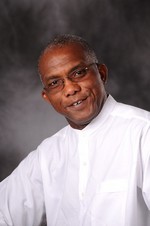 2012-2013: Godfrey St. Bernard 2012-2013: Godfrey St. Bernard
How did you come to specialize in Caribbean Studies? Geography was of interest to me by the time I was 5 years old. I remember having the Collins Caribbean Atlas, a little green Atlas that made the Caribbean islands look big. Of course, I had no sense of scale but by age 7 years, I found myself being able to sketch all of the English-speaking islands by hand, name and locate the town/city that was the capital and state the names of the main airports. By the time I was in secondary school, I had been introduced to Caribbean geography and history, both of which gelled in terms of enhancing my understanding of peoples and places from a Caribbean context. » Read More |
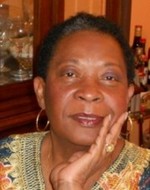 2011-2012: Carolle Charles 2011-2012: Carolle Charles
How did you come to specialize in Caribbean Studies? I made that choice when I went to Graduate school but I was already involved in doing participant research as I was involved in community activism, particularly working with women and feminist groups. » Read More |
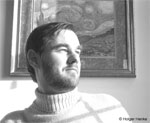 2010-2011: Holger Henke 2010-2011: Holger Henke
How did you come to specialize in Caribbean Studies? My interest in the Caribbean and Caribbean Studies developed gradually and from several sources. At a personal (and probably most profound) level I became interested in the Caribbean through the music of Bob Marley and other Jamaican reggae – during the late 1970s and early 1980s. This was not a linear or straightforward development for me. In fact, for me, getting to like the music was a process and somewhat an “acquired taste.” Once, however, I started to appreciate reggae music, it was a love affair that really sparked my interest in its origin. » Read More |
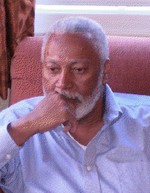 2009-2010: Linden Lewis 2009-2010: Linden Lewis
How did you come to specialize in Caribbean Studies? I did my undergraduate work at the University of the West Indies at the Cave Hill Campus in Barbados. It was there that my intellectual interest in the Caribbean began forming. Not only was I studying the region from different disciplinary perspectives, but for the first time I was interacting with people who were neither Guyanese or Barbadian – the two Caribbean people I knew best. I was becoming familiar with my extended family from around the region in a concrete way that I had not even imagined before.» Read More |
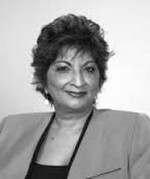 2008-2009: Patricia Mohammed 2008-2009: Patricia Mohammed |
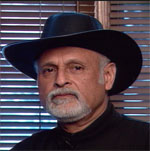 2007-2008: Anton Allahar 2007-2008: Anton Allahar
1) How did you come to specialize in Caribbean Studies? I was born in Trinidad and lived there for the first 20 years of my life. I immigrated to Canada in 1969 and my Caribbean identity was born there, in exile, so-to-speak. It is difficult to have a Trinidadian identity when one lives in Trinidad and all around you are Trinidadians. The same goes for an Antiguan, a Bajan or a St. Lucian etc. Because social identities are situational, they depend on social context, so when I am with Canadians, I am Caribbean, but if I am with Caribbean people I am from Trinidad, and if I am with Trinidadians I am from Diego Martin and so on. » Read More |
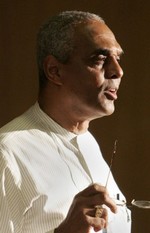 2006-2007: Percy Hintzen 2006-2007: Percy Hintzen |
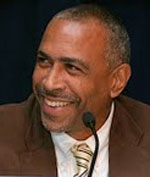 2005-2006: Pedro Noguera 2005-2006: Pedro Noguera
How did you come to specialize in Caribbean Studies? My interest in the Caribbean grew out of my family background (my mother is Jamaican, my father Trinidadian. My family’s roots are pan Caribbean including Venezuela, Panama, Barbados, Guyana, Tobago and Haiti). My research interests began with the Grenada Revolution in 1979 and my desire to understand the changes that were occurring in the country and to contribute to the experiment in democratic socialism. » Read More |
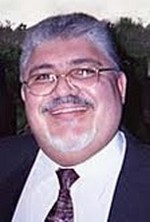 2004-2005: Emilio Pantojas-García 2004-2005: Emilio Pantojas-García
How did you come to specialize in Caribbean Studies? I started in 1987 with a Fulbright Scholarship to do research on the impact of the Caribbean Basin Initiative (CBI) on the Eastern Caribbean. I spent 6 months doing research in Dominica, St. Lucia and Barbados. During my tenure as a Fulbright Scholar I participated in U.S. Congressional Hearings on the CBI in Barbados and got in contact with a network of NGOs activist and academics that became lifelong friends. » Read More |
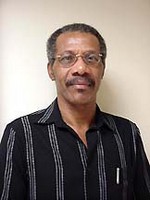 2003-2004: Frank Mills 2003-2004: Frank Mills
How did you come to specialize in Caribbean Studies? I am of the Caribbean, and even though I studied in Canada and the United States, there was never any hesitation as to what I wanted to study or where I wanted to spend my professional life. » Read More |
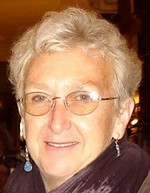 2002-2003: Jean Stubbs 2002-2003: Jean Stubbs
How did you come to specialize in Caribbean Studies? I came to Caribbean Studies through Latin American Studies. My doctoral studies under the great late historian Eric Hobsbawm at Birkbeck College, University of London, took me to Cuba in 1968 to research labour history in tobacco. They were heady times and I stayed, having met my soul mate – and life partner to this day – writer and journalist Pedro Pérez Sarduy. It was several years before I finished my PhD (1975) and reworked my thesis to be published as a monograph for Cambridge University Press (1985), our two children and an exciting social and cultural life in Cuba taking up much of my time in the intervening years. » Read More |
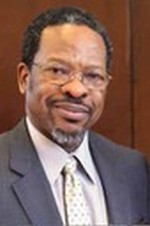 2001-2002: Ivelaw Griffith 2001-2002: Ivelaw Griffith |
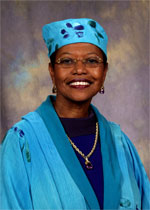 2000-2001: Cora Christian 2000-2001: Cora Christian
1. How did you come to specialize in Caribbean Studies? I am married to one of the founding members of the Association. It was started the year before I got married and I attended my first CSA in 1976. I had always done applied research as a physician since my education at Johns Hopkins emphasized the importance of applied research. Being from the Caribbean and living in the Caribbean, it was important to do so although I was not at a university. » Read More |
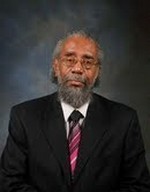 1999-2000: Neville Duncan 1999-2000: Neville Duncan
How did you come to specialize in Caribbean Studies? Because I wanted to make a contribution to Caribbean Development. How did your interest in and commitment to Caribbean Studies evolve? Simply from my University educational choice for economics and then political science along with a deep impatience I have with injustice in the world. » Read More |
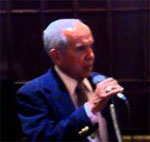 1998-1999: Gilberto Arroyo 1998-1999: Gilberto Arroyo |
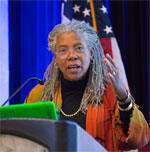 1997-1998: Lynn Bolles 1997-1998: Lynn Bolles
1) How did you come to specialize in Caribbean Studies? My graduate work focused on the African Diaspora from the very beginning with designs of working on the Black communities in Peru. After an opportunity to do a summer school session at the African Caribbean Institute of Jamaica, I knew that the work in Latin America would have to wait. I have done most of my scholarship in the Caribbean. » Read More |
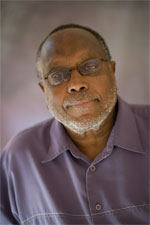 1996-1997: Locksley Edmondson 1996-1997: Locksley Edmondson |
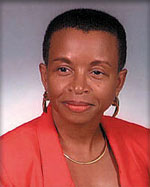 1995-1996: Laverne Ragster 1995-1996: Laverne Ragster |
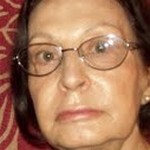 1994-1995: Rita Giacalone 1994-1995: Rita Giacalone
How did you come to specialize in Caribbean Studies? My first job in Venezuela (1979) was as a research assistant in a project about the border question between Venezuela and Guyana. » Read More |
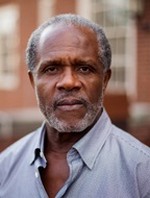 1993-1994: Hilbourne A. Watson 1993-1994: Hilbourne A. Watson
1. How did you come to specialize in Caribbean Studies? My fields of concentration in graduate school were International Relations, Comparative Politics (Africa), Political Theory, and International Political Economy. I did not complete any formal study of the Caribbean as a college student. I came to Caribbean Studies in an indirect way, when I decided to conduct doctoral dissertation research on the Political Economy of Foreign Direct Investment in the Commonwealth Caribbean since World War II. » Read More |
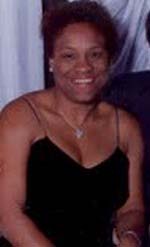 1992-1993: Jacqueline Anne Braveboy-Wagner 1992-1993: Jacqueline Anne Braveboy-Wagner
How did you come to specialize in Caribbean Studies? I obtained an M.S. in International Relations at the Institute of IR, UWI, St. Augustine where I specialized in an area best described as Caribbean conflict and international law. However, in my further studies and work in the United States, I specialized in broader global south international studies, albeit while retaining a sub-specialty in small states, including the Caribbean. » Read More |
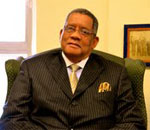 1991-1992: Robert Millette 1991-1992: Robert Millette
How did you come to specialize in Caribbean studies? My interest in Caribbean studies was developed during my tenure as an undergraduate student at Brooklyn College in New York. My interest was intensified during my stint as Grenada’s Ambassador to the United Nations. » Read More |
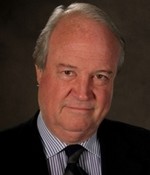 1990-1991: Jorge Heine 1990-1991: Jorge Heine
Jorge Heine (PhD, Stanford) is the CIGI Professor of Global Governance in the Political Science Department at Wilfrid Laurier University and a Distinguished Fellow at the Centre for International Governance Innovation, Canada’s premier think tank on IR, in Waterloo, Ontario. He serves currently as Vice-President of the International Political Science Association (IPSA) and is gearing up for the XXI World Congress of Political Science, to be held in his native Santiago, Chile, in July 2009. He was previously Ambassador of Chile to India, Bangladesh and Sri Lanka (2003-2007), and served also as Ambassador to South Africa (1994-1999) and as a Cabinet Minister and Deputy Minister in the Chilean Government. » Read More |
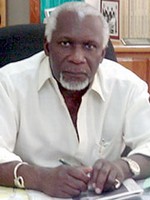 1989-1990: Selwyn Ryan 1989-1990: Selwyn Ryan
How did you come to specialize in Caribbean Studies? Being a Caribbean person and a social scientist, I was always interested in Caribbean Problems. How did your interest in and commitment to Caribbean Studies evolve? I wrote my PhD thesis on the political history of Trinidad and Tobago and continued my interest after getting my doctorate. » Read More |
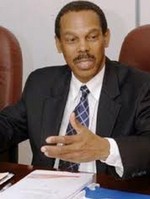 1988-1989: J. Edward Greene 1988-1989: J. Edward Greene
How did you come to specialize in Caribbean Studies? How did your interest in and commitment to Caribbean Studies evolve? |
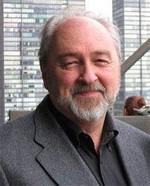 1987-1988: Andres Serbin 1987-1988: Andres Serbin |
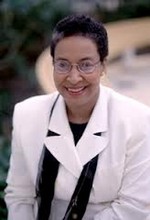 1986-1987: Alma H. Young 1986-1987: Alma H. Young |
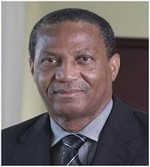 1985-1986: Compton Bourne 1985-1986: Compton Bourne
How did you come to specialize in Caribbean Studies? From my teenage years, I have had a deep interest in Caribbean affairs. It was natural then to concentrate my professional life on research and policy in the Caribbean. » Read More |
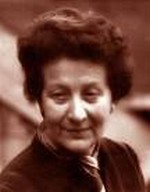 1985: Vera Rubin 1985: Vera Rubin |
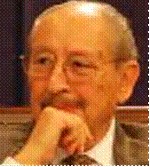 1984-1985: Fuat M. Andic 1984-1985: Fuat M. Andic
How did you come to specialize in Caribbean Studies? I joined the Institute of Caribbean Studies in 1964 as a researcher, splitting my time between teaching at the department of economics at UPR and the Institute. Since there was a considerable body of research related to the British Caribbean and hardly any research on French and Dutch Antilles I decided to specialize on those islands. » Read More |
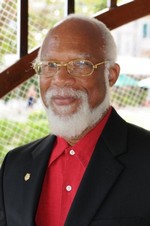 1983-1984: Simone Jones-Hendrickson 1983-1984: Simone Jones-Hendrickson
How did you come to specialize in Caribbean Studies? I got interested in Caribbean Studies from my High School days when I was Head Prefect of my High school. Every Wednesday I had to present some news items on the Caribbean and the world to the entire school. That was my primary start. » Read More |
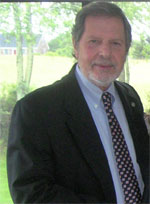 1982-1983: Anthony Maingot 1982-1983: Anthony Maingot |
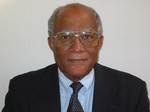 1981-1982: Ransford Palmer 1981-1982: Ransford Palmer |
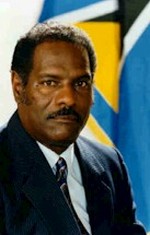 1980-1981: Vaughn Lewis 1980-1981: Vaughn Lewis |
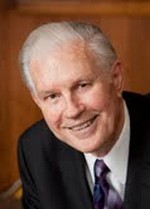 1979-1980: Wendell Bell 1979-1980: Wendell Bell
1. How did you come to specialize in Caribbean Studies? Wendell Bell: When I planned my first trip to Jamaica in 1956, I thought that I would be spending only one summer there. My intention was to do research on the social areas of Kingston to compare with research that I had been doing on American cities. In 1955, I had co-authored a monograph on Social Area Analysis that focused on mapping the social areas of cities differentiated by socioeconomic status, family life, and race and ethnicity. » Read More |
| 1978-1979 |
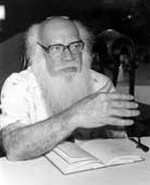 1977-1978: John Figueroa (deceased) 1977-1978: John Figueroa (deceased) |
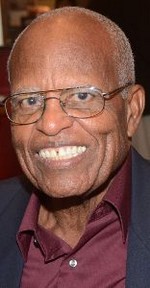 1976-1977: Basil Ince 1976-1977: Basil Ince |
| 1975-1976: Roland I. Perusse |
| 1974-1975 |

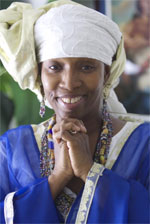 2022-2023: ChenziRa Davis Kahina
2022-2023: ChenziRa Davis Kahina